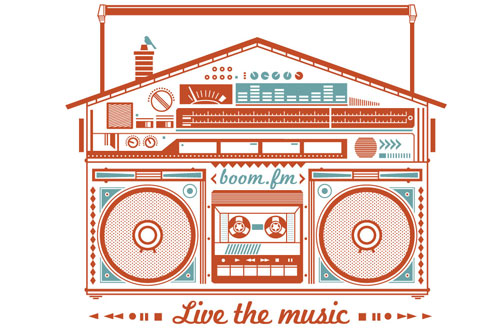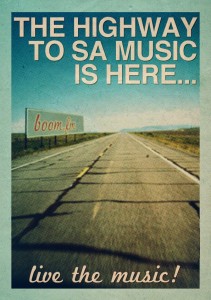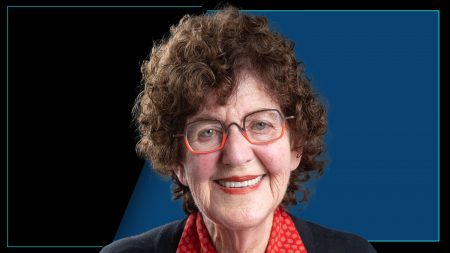
Stellenbosch-based start-up Boom.fm is an online music discovery service that encourages group listening and looks set to make more South Africans familiar with a wider variety of local music. It’s also going to provide local artists with an additional revenue stream, despite its core service being free.
Founded by Pete Matthaei and Ruth Harris, Boom.fm has almost 130 SA bands and musicians on its books, even though it only launched this week. Matthaei says this is due to its courting bands directly and a dedicated team of content staff at Boom.fm which has “helped overcome the hurdle of getting bands interested in the model”.
Matthaei was involved with Alan Knott-Craig Jr’s investment vehicle, World of Avatar — which is funding Boom.fm — for a number of years prior to starting the new company but says he moved on because he’s “an engineer by training and wanted to actually build things”.
Boom.fm isn’t the first service of its kind online: it shares a number of elements with sites such Last.fm, Spotify and Turntable.fm. But it is the first service catering to SA bands and musicians specifically. Also, Last.fm started out as a very different service to the one it has become, and neither Spotify nor Turntable.fm is locally available without users jumping through hurdles.
“I’d seen how popular Turntable.fm had become, but you can’t enjoy that here due to licensing,” says Matthaei. “It looked like a compelling offering. You can be your own deejay, discover other people’s playlists, share tracks with other users, and so on.”
Matthaei thinks Boom.fm’s approach is less “gimmicky” and less focused on the deejay angle. “Turntable.fm is mostly focused on the electronic music market. We cover a much broader range of music.”
Boom.fm allows subscribers to sign up as either a “band” or a “fan”. The former can upload content for consideration, set up a band page and will eventually be able to sell tracks via the site.

Fans, meanwhile, can create a profile page, listen to and “favourite” tracks around the site, follow bands or other users updates, and create or join “radio rooms” where they can chat to like-minded music fans, add or remove tracks from collective playlists and vote for tracks, which helps determine their position in the playlist.
Eventually, Boom.fm will also produce its own podcasts or those of special guests and will stream them in radio rooms.
Matthaei says the company doesn’t want to take the Google approach and “spend three years in beta” but is keeping the beta tag for a while so it “doesn’t create false impressions about what we’re doing. Also the tag makes people more comfortable about giving feedback.”
Initially, the service was conceived as more of an online store, where bands could upload their own material. But Matthaei realised that would place Boom.fm in direct competition with the local RhythmMusicStore or BandCamp as well as Nokia Music and iTunes, if the Apple service were to be introduced here.
“We felt like the storefront format didn’t answer the question of why I, as a user, would keep coming back,” he says. “The discovery mechanism seemed the reason to come back.”
With three developers, two management staff and a content team of four, Matthaei says Boom.fm is an “operationally heavy” service because “we don’t believe that just building a service and hoping the content will populate itself is the way to go. We have to be involved and visible”.
The backend is being hosted by Amazon’s S3 service. Matthaei says Boom.fm hopes Amazon will eventually have a local data centre, but in the interim it was the cheapest option to host overseas.
Matthaei says Boom.fm will spend the first fortnight after going live this week “working social media angles”. It plans to offer bigger music events, ticket giveaways for international acts coming to SA in coming months and leveraging unsold advertising inventory from other World of Avatar companies.

So why should bands consider getting their music on Boom.fm? “Most bands are on Facebook, Myspace, Twitter and the like, but those are tools for connecting with an existing fan base. We’re trying to build a band an audience. Radio rooms might be first place someone encounters a particular track. It’s the opportunity to get play-listed in a nontraditional sense.”
Matthaei says the Boom.fm team keeps an eye on the radio rooms in case of abuse and can “boot” users from rooms if necessary. He says the company is also planning to grant users who create rooms administrator-like privileges. “We’re taking a ‘wait-and-see’ approach to how people will try to beat the system.”
At this stage, tracks are streamed at a bitrate of 64kbit/s, not only to reduce the amount of bandwidth consumed but “because at some stage we’d like to get the labels on board and we don’t want to step on toes by creating another channel for people to pirate. We’re about music discovery, so at the moment we’re going for radio-quality streaming.”
Matthaei says paid downloads will be available at far better quality. Moreover, once the site supports paid downloads, independent artists will keep all revenue from track sales aside from transaction fees, taxes and any related costs.
Boom.fm is also in talks with digital music aggregators and record labels to sell signed acts’ material and it will keep a small percentage of these sales. Matthaei says the company doesn’t want to be “just a music website”. Rather, it wants to have a “real-world presence at festivals, concerts and gigs”.
The site also plans to add custom content in coming months and has set up a YouTube channel to post the material from its video crew.
Bands can submit their material by signing up to the site and demos are as welcome as studio recordings, However, Matthaei says the site won’t feature or promote music that isn’t good. He adds the one thing the site does check is that the band is both “legitimate and local”.
Though Boom.fm isn’t opposed to international content, Matthaei says the focus is on up-and-coming artists rather than big, established acts. This extends to international artists as well. “We want to provide a platform for bands that are flying under the radar or otherwise getting swamped by big international acts.”
He says users will be able to download tracks within a few weeks and he hopes to grow the number of bands on the site dramatically by then. The company has also branded an old Volkswagen Kombi for use at festivals and other live music events, so expect to see – and hear – more about Boom.fm in months to come. — Craig Wilson, TechCentral
This section on TechCentral focuses on technology start-ups in SA. The purpose is to profile what our start-up entrepreneurs are doing and to highlight some of the interesting technology ideas coming out of SA. Do you have an interesting tech start-up? Are you doing something out of the ordinary? Why not drop TechCentral a line and tell us about what you’re doing?
- Subscribe to our free daily newsletter
- Follow us on Twitter or on Facebook
- Visit our sister website, SportsCentral (still in beta)




